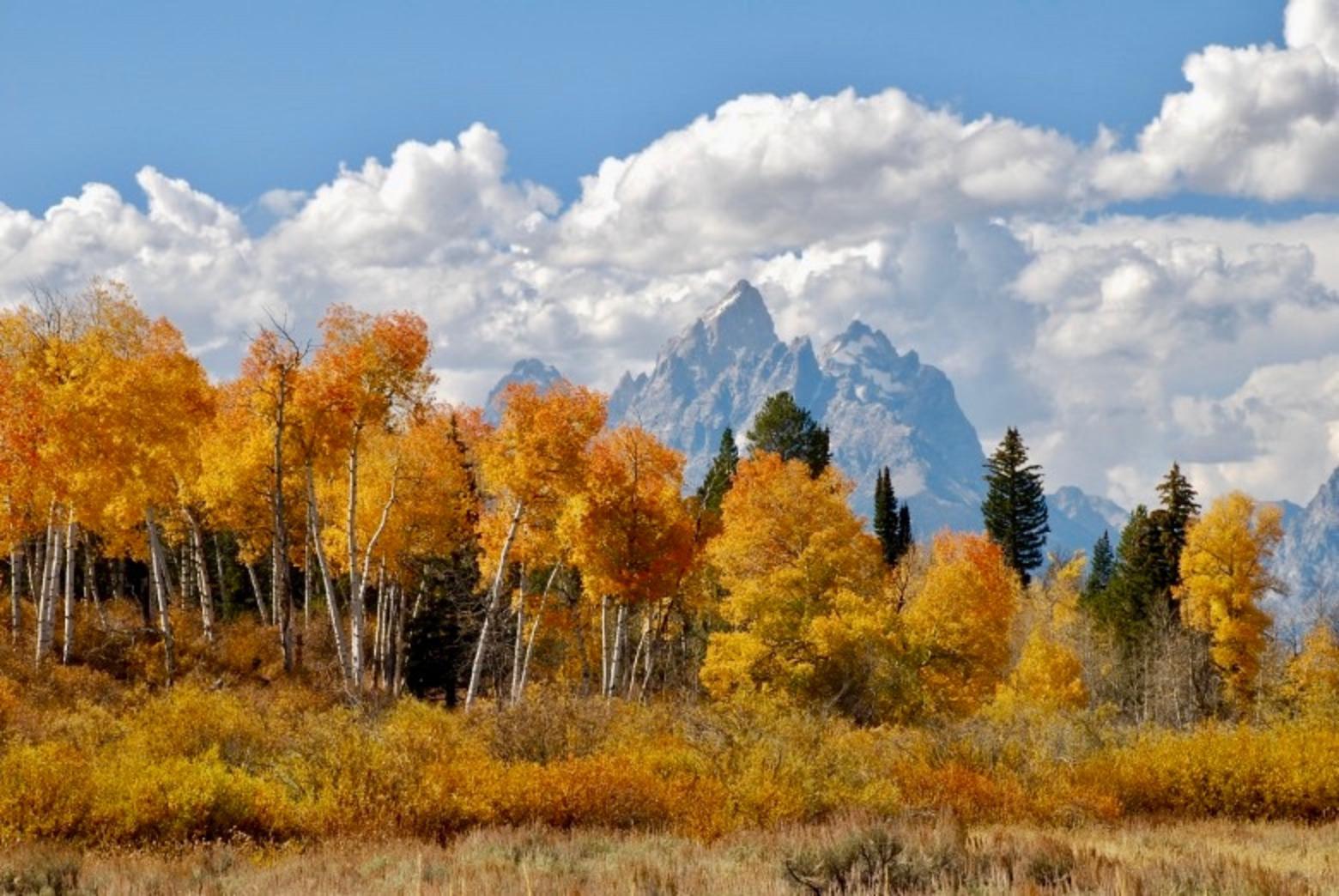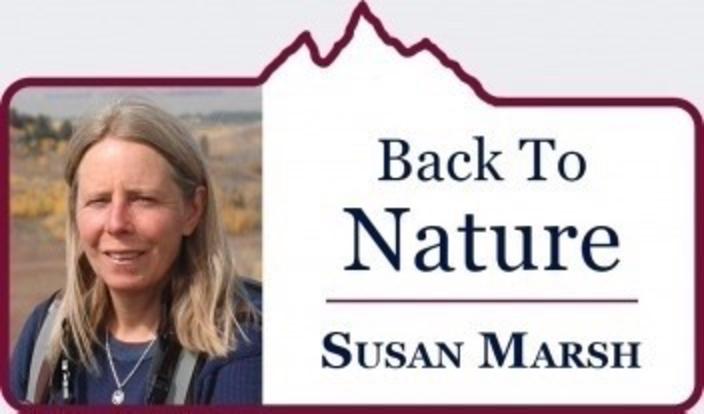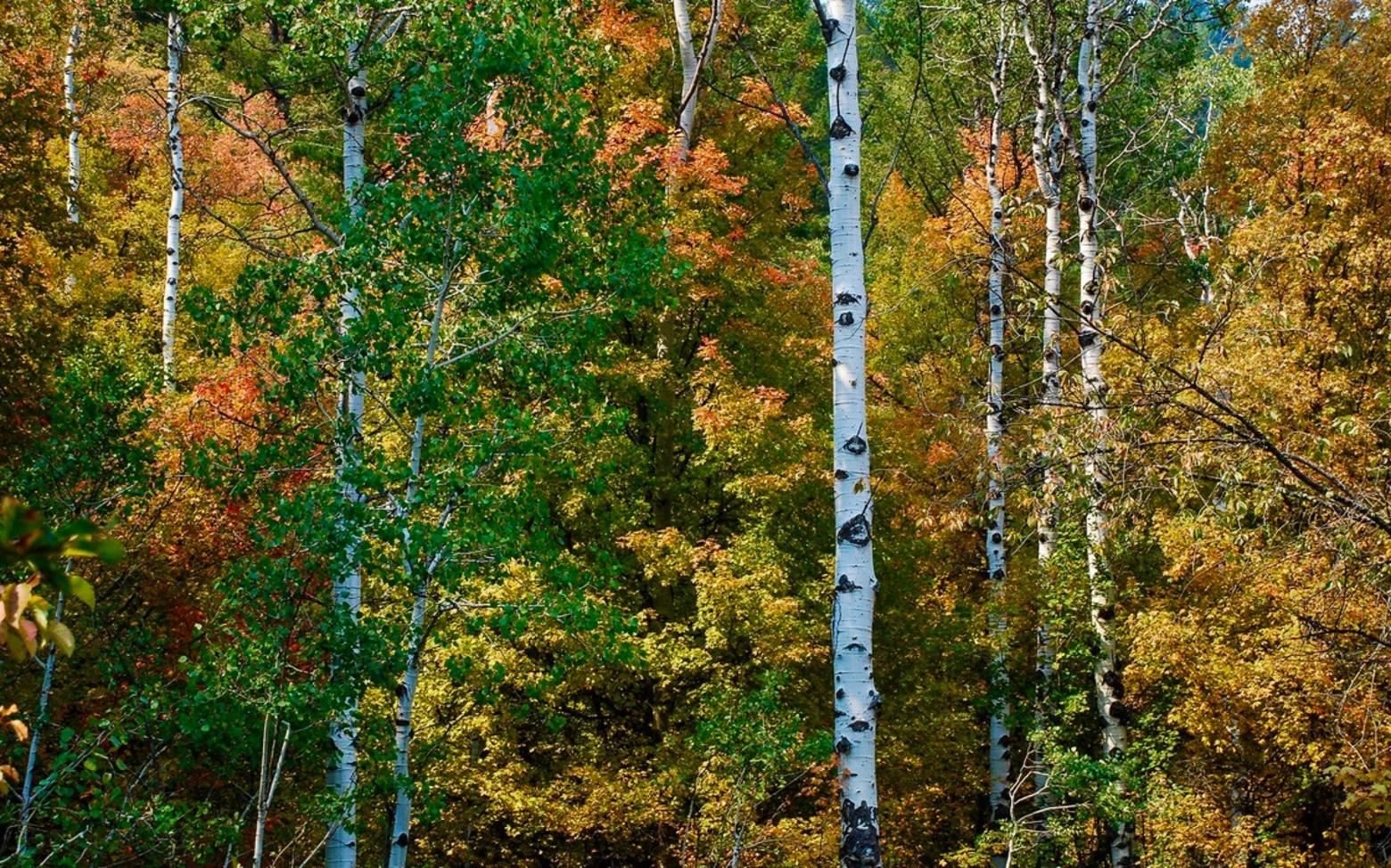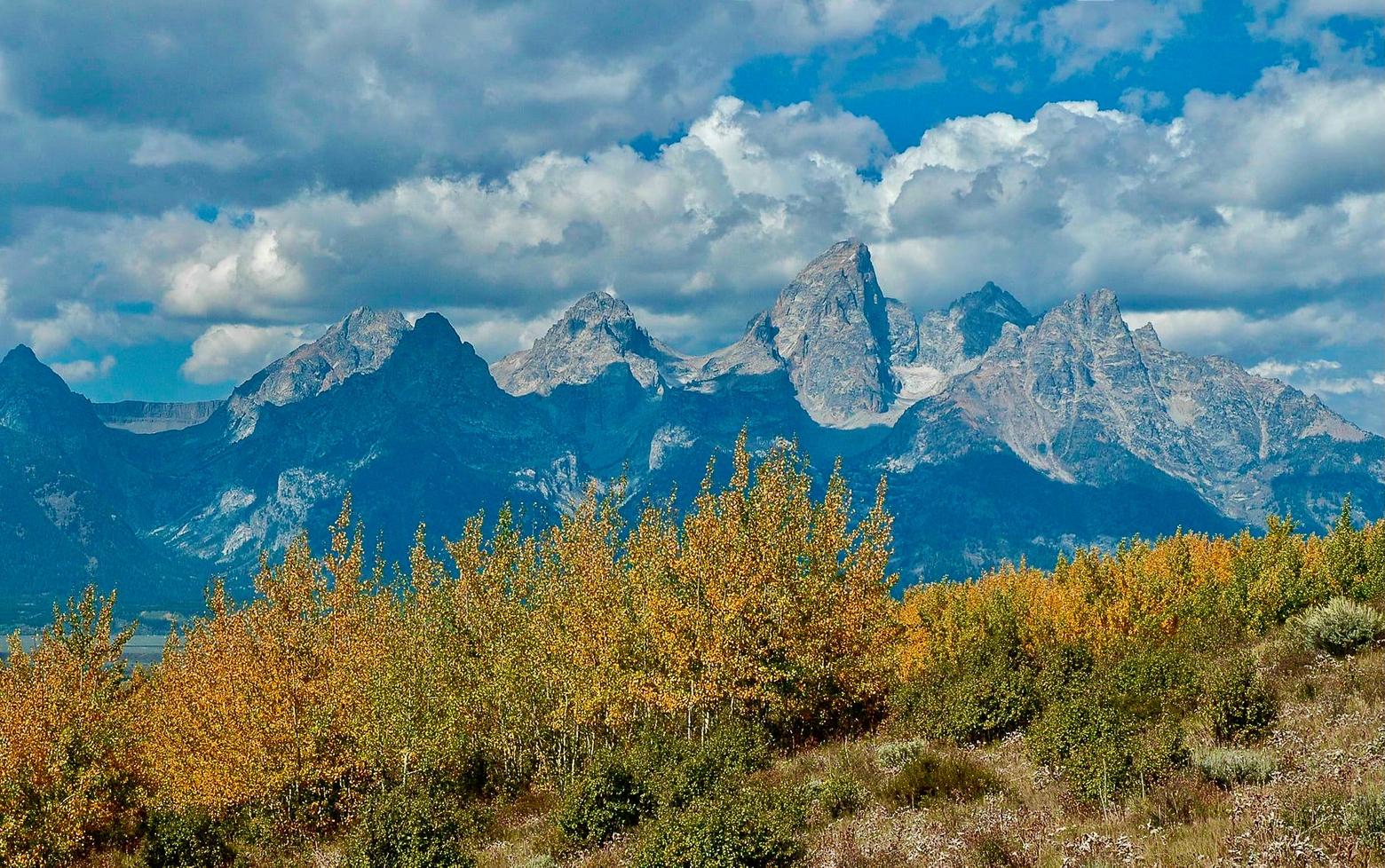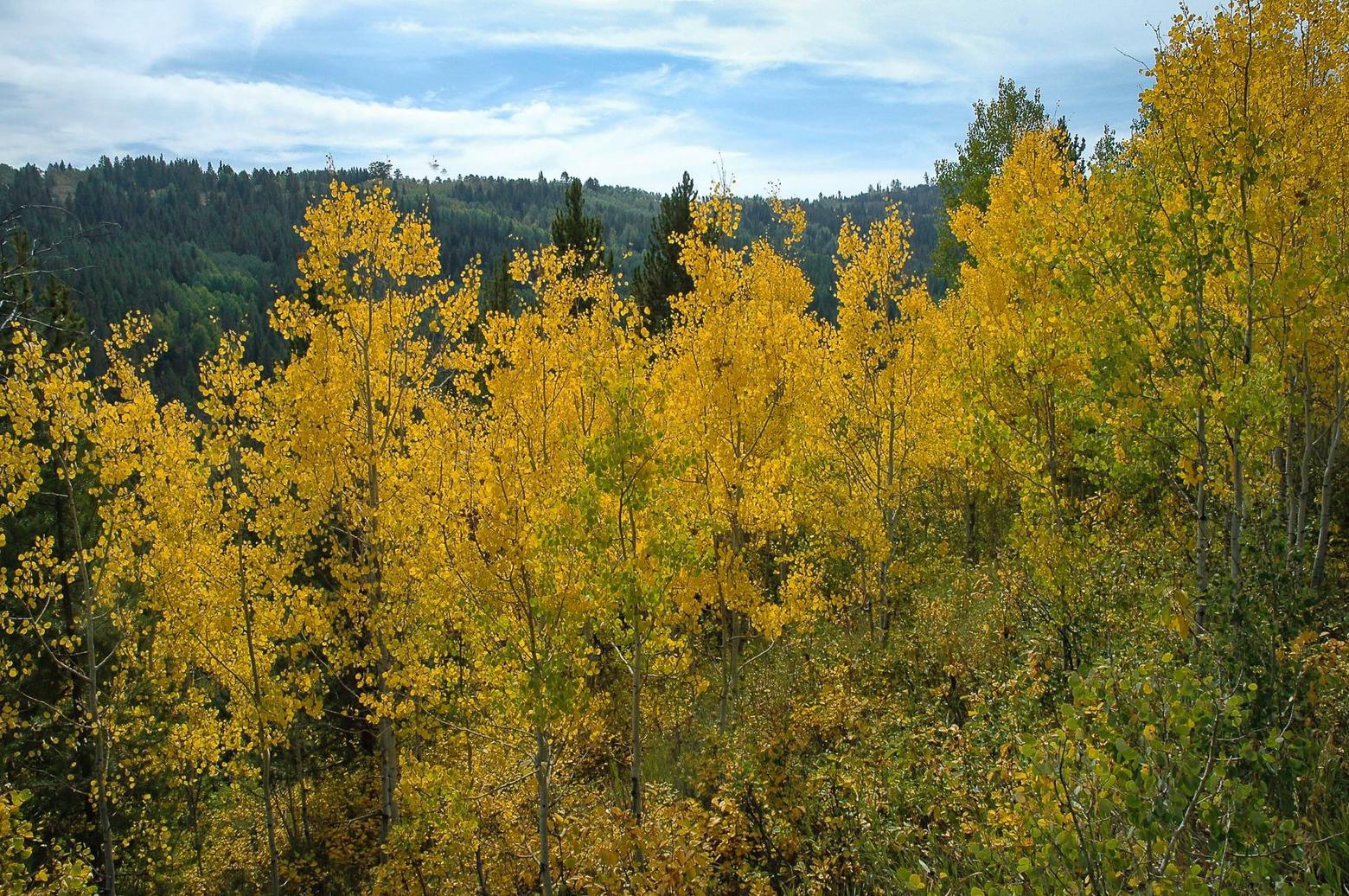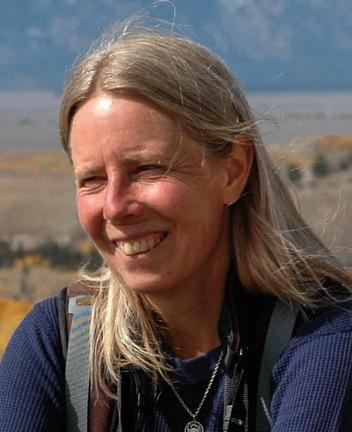Back to StoriesThe Dwelling Tree: Why Does Autumn Touch Our Soul So Deeply?
September 20, 2021
The Dwelling Tree: Why Does Autumn Touch Our Soul So Deeply?For Susan Marsh, it goes far beyond the sensuousness of color. The fall reminds that there is humbling glory beyond our own impermanence
EDITOR'S NOTE: On Sept. 19, 2021, the FBI announced that the body of missing traveler, Gabrielle "Gabby" Petito, 22, had been found in the Spread Creek Dispersed Campground managed by the Bridger-Teton National Forest just east of Grand Teton National Park. Her disappearance has attracted national attention, sadness and, of course, our condolences are with her family and friends. Spread Creek, which affords spectacular views of the Tetons, is a beloved camping spot (often overrun by people during these Covid times) and a fine place for day hiking. When a traumatic event like this happens, it engenders compassion for the victim and alters the way we think about place. In this new essay below, Mountain Journal columnist, award-winning writer/naturalist and retired Forest Service backcountry specialist Susan Marsh reflects on finding a grounding place in autumn. Marsh over the years has been a regular visitor to those public lands in and around Spread Creek. The events of the last several days have been on her mind.
By Susan Marsh
Around the autumnal equinox when all is aglow with fall color, everyone I talk to mentions that this is their favorite time of year. Mine too, but I always wondering what lies beneath the obvious reasons—the flaming red maples in the Snake River Canyon and torch-like stands of aspens on the mountainsides, the calls of migrating sandhill cranes, the bugling of elk deep in the forest, the crisp air and quality of light as the sun moves southward, illuminating all in a wash of dusty yellow. For some it’s the hunting season for which they’ve prepared all summer, for others the carefully tended tomatoes that are finally getting ripe.
While these are quite enough to make fall a favorite time of year, it’s the way the sum of them strikes the heart that makes me wonder why. Something primal stirs within during this time of year, something I want to latch onto and define, maybe put it in a bottle so I can open it up for a sniff in the middle of winter.
While fall is busy with harvest and preparation for the cold to come, it is also a time that asks me to set aside my perpetual state of doing, and take some time to deeply appreciate the beauty of the season. The flaming red leaves on the bigtooth maple will soon turn brown and dry. The shadows will lengthen and the fire will go out.
While it’s obvious that camera-laden leaf peepers along the roadside appreciate what they see, I seek more immersion, beyond simple observation. I can’t consider myself to be there, in that special autumnal place, if I don’t get out of the car and wander a bit, surrounded by the amber light that collects in an aspen stand, listening to the crunch of fallen leaves underfoot.
Surrounded by leaves that filter sunlight like a stained-glass window, I dawdle, stand and stare upward and turn a full circle to take it in. I sit on a log, lie back in the dry grass. The trees have a particular sound and smell when their leaves are dying—a breeze sends them to whispering while the warmth of the ground collects a season’s worth of growth, its scents mixed and concentrated by the process of drying and curing.
Insects visit—grasshoppers that somehow survive the freezing nights, a final fritillary butterfly, now faded and translucent as the leaves. The quiet buzz of a bumblebee checking out a late-blooming lupine, the snapping of a castanet grasshopper before it tumbles into the grass (they can’t seem to stick the landing). These welcoming sounds invite me to dwell for a while in a cocoon of repose as one season folds into the next.
The ephemeral nature of this beauty adds to its depth and poignancy, reminding us of our own short lifespans. Sweetness and melancholy mix to put me in a thoughtful, contemplative mood. It’s a mood I often seek at other times of year, that mental space I need for meditation, art, writing. In the fall, I don’t have to seek it out; the mood finds me.
A few days ago I ambled around a favorite aspen haunt and noticed how different it felt when I stopped walking and sat for a while. I tend to stay on my feet most of the time, my legs (like all of ours) designed to move. But when a fallen log or patch of dry pinegrass beckons, I sit. Sometimes I stay long enough to experience a few minutes when time seems to stop.
On this recent day the wind was up and its sound in the leaves asked me to take a break. Besides, I was hungry. I picked a spot under the shelter of a Douglas-fir, perched along a ridgeline at the windward edge of an aspen stand, and sat in the needle duff below. My stomach satisfied, I simply sat and listened, forearms wrapped around my knees and eyes following the fluttering of leaves overhead. With no effort, my mind emptied, aware only of my presence in the place. The sound of the wind lulled me and the ground was soft. I lay down.
I turned onto my side and curled into a pose usually reserved for sleep. There I felt a strong connection with the earth, head in the needle duff, nose near the warm ground, eyes at bug level until I closed them and returned my attention to the wind. My dog must have felt the same sense of peace; she too lay down instead of nosing and pawing and squirming as she usually does when I’m on the ground.
I might have dozed a bit, or not, but either way I felt a deep serenity come over me. Being in that place the way I was felt so correct, what I needed at exactly that time.
Thoreau was right when he said that heaven is under our feet as well as over our heads. If heaven lay under me, under the fir-needle duff and soil and glacial deposits and bedrock below, perhaps the spirit in charge of heaven dwelt there as well. Perhaps it dwells everywhere you may care to notice, appreciate and spend some quiet time in.
Thoreau was right when he said that heaven is under our feet as well as over our heads. If heaven lay under me, under the fir-needle duff and soil and glacial deposits and bedrock below, perhaps the spirit in charge of heaven dwelt there as well. Perhaps it dwells everywhere you may care to notice, appreciate and spend some quiet time in.
When I finally got up, refreshed, I turned to take a picture of the Douglas-fir, leaning strongly away from the wind as it had learned to grow, as if it wanted to join the aspen stand behind it. I called it the Dwelling Tree, the place where the holy/great spirit dwelt. It wasn’t that I thought this place held more power than any other, but while I was there I was reminded of all that is unknown, unknowable, and beyond the reach of human understanding. A place where a moment can stretch toward eternity, where one can sit in comfort with the great mysteries and unanswered questions of our lives.
Lately I’ve been reading about those unanswered ‘great questions’ of humanity, about purpose and meaning, life and death, who we are as humans in this world of diverse and abundant life. One branch of philosophy has us part of a greater earthbound whole with all our relations, including animals, plants, rivers and mountains. Another sets us up as the peak of creation, the species for which the universe was made. Science traces our lineage from an ancestor we share with other primates, while a poem I read this morning portrays the body as this thing we cart around for a few decades and then discard (and go where?).
I’m reminded of a snippet from an old Joni Mitchell song, “Still I sent up my prayer
wondering who’s there to hear” which speaks to the state of my personal search. My prayer, unlike the following line of the song that asks only for a partner with a modicum of sincerity, has no words, no requests, only an inchoate desire for becoming a “better” person, whatever I mean by that.
wondering who’s there to hear” which speaks to the state of my personal search. My prayer, unlike the following line of the song that asks only for a partner with a modicum of sincerity, has no words, no requests, only an inchoate desire for becoming a “better” person, whatever I mean by that.
As I write this, I recall the contrast between the time I spent under the Dwelling Tree and my wakefulness last night: total peace versus total anxiety. I couldn’t shut off the hydrant hose of thoughts, mostly related to everything I’ve done wrong in my life for which I feel ashamed. Why was I castigating myself for small wrongs committed decades ago? Does everyone do this? Don’t mentally healthy people forgive themselves and move on?
As I write this, I recall the contrast between the time I spent under the Dwelling Tree and my wakefulness last night: total peace versus total anxiety. I couldn’t shut off the hydrant hose of thoughts, mostly related to everything I’ve done wrong in my life for which I feel ashamed. Why was I castigating myself for small wrongs committed decades ago? Does everyone do this? Don’t mentally healthy people forgive themselves and move on?
Compared to a night of self-flagellation over mistakes and faults, lying in the woods among the glowing leaves instills a tenderness toward the earth and all living things, even including one’s small, flawed self.
Not every hike is like the one I described above. Most of the time I’m just another leaf-peeper out for a seasonal ramble, enjoying the day in my normal state of mind. Time does not stop, the spirit does not descend or ascend and my mind does not empty of miscellaneous trivia. I don’t have a clue about what made this singular experience different, but I do think about how infrequently such moments of total openness come to me, as if we were allotted only a few encounters with clarity in a lifetime. Most of mine have been memorable, and all of them occurred out in the wilds. My kind of temple; my form of a shrine.
Who knows where my prayer goes? Perhaps it only matters that I have one. I’m writing one right now, I suppose, in gratitude for the lone Douglas-fir and its attendant aspen stand that showed me how to slow down and retreat into the part of me that is my best and true self. Not the one who was rude to a friend forty years ago, not the one who lies awake at night wondering why.
Perhaps it’s in search of this self that I seek quiet and non-spectacular natural places, off the main trails where I expect to be alone, knowing that moments of spiritual repose are few and fleeting, and knowing that for this one person and perhaps many more, they are an entrance into a reality that I can only glimpse.
Related Stories
July 3, 2018
Is David Vela The Next Chief Of The National Park Service?
Grand Teton park superintendent rumored to be top pick. Would be first Hispanic-American to oversee agency
July 25, 2018
Are We Seeking Escape To—Or From—The Real World?
Naturalist Susan Marsh, a maven of the high country, helps us find an answer in the 'wildflower forest'
August 23, 2018
Last Of The Old West: When The Thrill Of Wild Nature Isn't Enough
Jackson Hole and other mountain towns are losing their soul by being transformed into amusement parks. The question is why?

